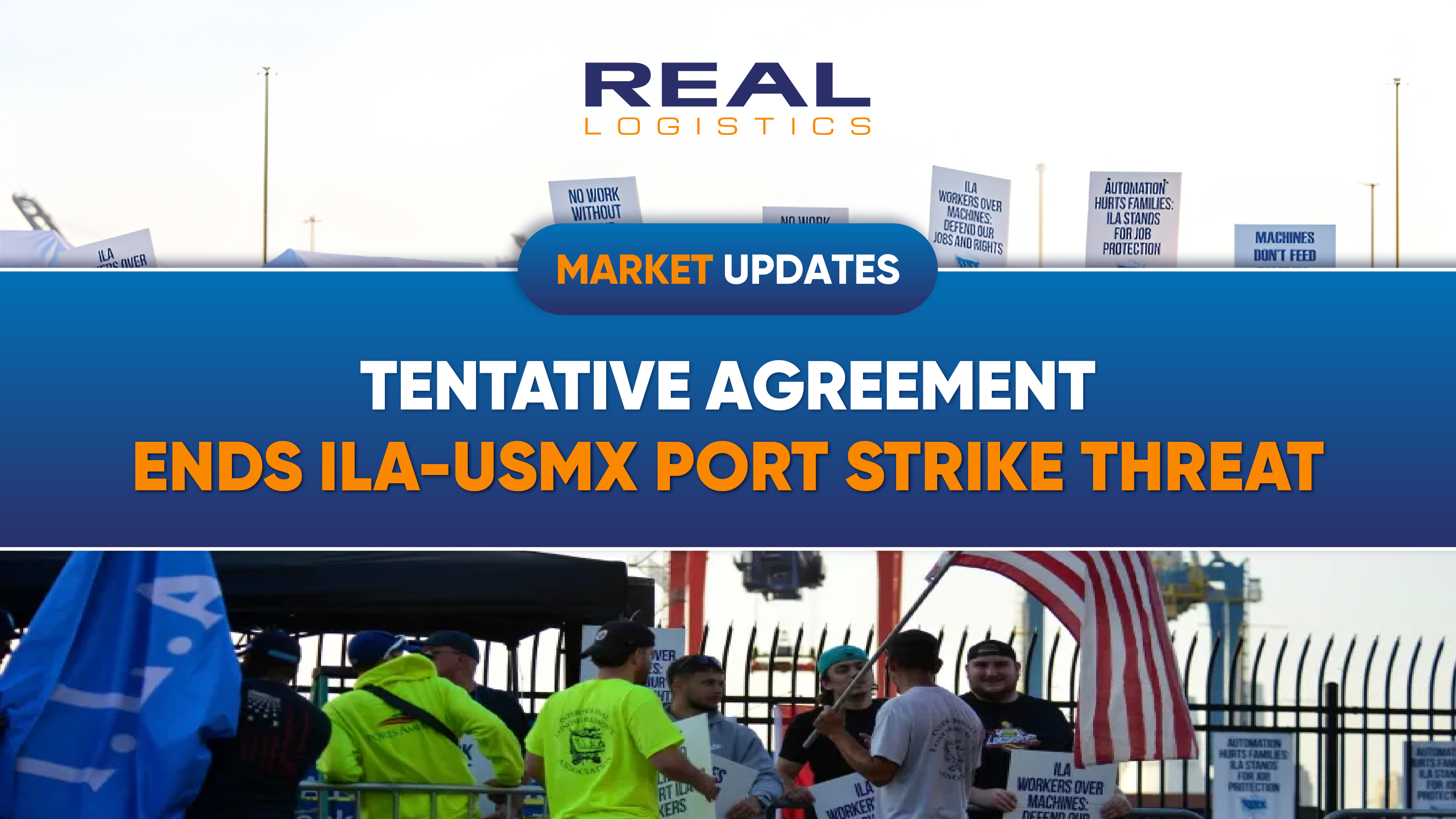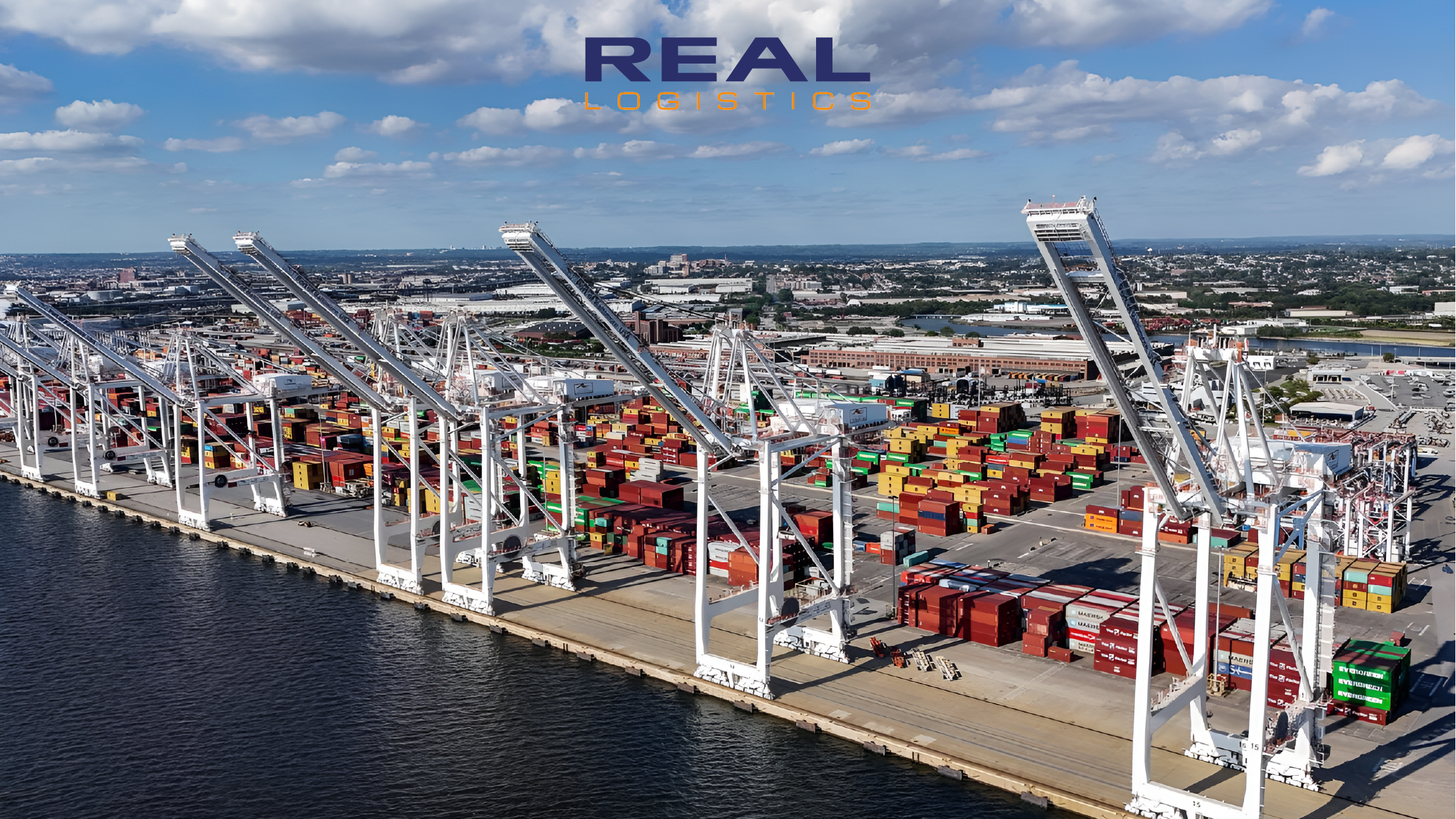Tentative Agreement Ends ILA-USMX Port Strike Threat

The threat of a major US port strike that could have disrupted trade and supply chains has been averted. The International Longshoremen’s Association (ILA) and the United States Maritime Alliance (USMX) have reached a tentative agreement on a six-year master contract. This breakthrough ensures operational stability across critical East and Gulf Coast ports.
1. Key Highlights of the Agreement
1.1. Tentative Six-Year Master Contract
The new agreement, subject to ratification by the union’s Wage Scale Committee and USMX members, aims to maintain operational continuity. Until the final vote, ports will continue operating under the current contract terms.
1.2. Balance Between Automation and Job Security
The deal introduces semi-automated technologies like rail-mounted gantry cranes to enhance port efficiency. Crucially, each new piece of equipment will create high-paying jobs for dockworkers, emphasizing a harmonious blend of modernization and workforce protection.
1.3. Prevention of Freight Rate Increases
A potential strike would have disrupted ocean freight services, leading to delays, reduced container capacity, and significant cost increases. The agreement safeguards against these disruptions, stabilizing freight rates and maintaining trade flow.
.webp)
2. The Economic Impact of Averting the Strike
The tentative agreement concludes weeks of intense negotiations that many viewed as a last opportunity to resolve contentious issues before the January 15 deadline. Without a deal, the US faced a nationwide port strike that could have halted ocean freight services, causing widespread economic disruptions.
Past strikes, such as the three-day stoppage in October, highlighted the stakes. A similar scenario would have not only hindered trade but also driven up operational costs for importers and retailers, straining supply chains and consumers alike.
3. Industry Reactions
Importers, trade groups, and logistics providers have welcomed the agreement:
- National Retail Federation: Recognized the deal’s role in maintaining timely retail deliveries and paving the way for modernization efforts at US ports.
- Georgia Ports Authority: Praised the collective bargaining process and emphasized its commitment to high-productivity port operations.
- International Association of North America: Highlighted the collaboration as a milestone for fostering growth in containerized freight and intermodal supply chains.
Freightos research head Judah Levine emphasized the significance of balancing technological progress and workforce security, stating: "The tentative agreement frames tech as a job-maker, not a job-taker—a key compromise for modern supply chains."
Meanwhile, many shipping lines had already introduced strike-related surcharges. Analyst Lars Jensen pointed out discrepancies, such as MSC’s identical emergency disruption surcharges for routes from Northern Europe to the US and Canada, which raised questions about the rationale for such charges. Despite this, costs for shippers are likely to increase due to higher ILA wages, a trade-off many consider acceptable to avoid the severe economic impact of a strike.

4. Political Support from Donald Trump
ILA President Harold Daggett credited political backing, particularly from President-elect Donald Trump, for influencing the outcome. Daggett highlighted Trump’s discussions with USMX officials and alignment with the union’s anti-automation stance as pivotal in shaping the agreement. This involvement reflects a broader push to protect American workers while embracing modernization.
5. Conclusion
This agreement marks a pivotal moment in ensuring the stability of US supply chains. By aligning modernization with labor interests, the ILA and USMX have set a precedent for resilient and efficient port operations.
For businesses looking to secure their logistics operations or discuss upcoming orders, Real Logistics is here to assist. Contact us today to streamline your supply chain and navigate the evolving logistics landscape.
—————————————
Real Logistics Co.,Ltd
👉 Facebook: Real Logistics Co.,Ltd
☎️ Hotline: 028.3636.3888 | 0936.386.352
📩 Email: info@reallogistics.vn | han@reallogistics.vn
🏡 Address: 39 - 41 B4, An Loi Dong, Thu Duc, HCM City
51 Quan Nhan, Nhan Chinh, Thanh Xuan, Ha Noi City

